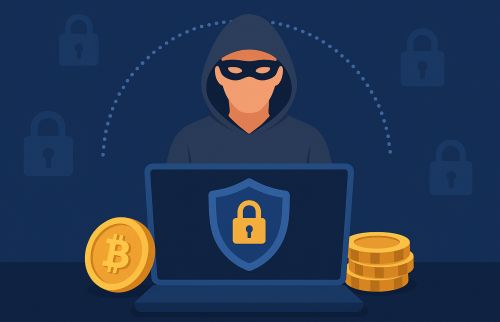

Crypto casinos promise fast play, global access, and a sense of privacy that traditional online gambling rarely offers. Yet true anonymity in 2025 is harder to achieve than most expect. Every transaction on a blockchain leaves a trail, and regulators continue to tighten identification rules across major jurisdictions. To protect privacy while playing at crypto casinos, a person must control what information they share, use secure tools, and understand how casino policies handle personal data.
Many players now seek platforms that balance privacy with safety. Some casinos still advertise no‑KYC registration, but these often come with trade‑offs such as weaker dispute protection or higher fraud risk. Therefore, smart players learn to verify licenses, use trusted wallets, and avoid leaving digital footprints that can expose their identity.
As privacy tools evolve, so do casino monitoring systems. The next sections explain how to apply core privacy strategies, strengthen account security, and maintain responsible gambling habits without losing control of personal information.
Core Privacy Strategies for Crypto Casino Players
Players who value privacy in crypto casinos should focus on anonymity, wallet security, account protection, and private browsing habits. Each step strengthens data safety and reduces exposure to unauthorized access or tracking.
Choosing Anonymous or Privacy-Focused Crypto Casinos
Selecting casinos that respect player anonymity protects personal data from unnecessary collection. Platforms that allow registration with only an email and a crypto wallet keep user information minimal. Some casinos even process deposits directly from wallets without storing identity details.
Players should confirm that the site uses SSL encryption and has clear privacy policies. Transparent licensing from recognized authorities adds accountability. Casinos that publish audit results or fairness certificates show a higher commitment to data protection.
A few privacy-focused platforms integrate blockchain tools that mask wallet addresses, making transactions harder to trace. Games like JB Originals, BC originals, and Stake highlight the growing interest in privacy-first gaming solutions that combine transparency with discretion. As privacy regulations evolve, these platforms set new standards for responsible data handling in the gaming industry. Ultimately, choosing a privacy-focused casino empowers players to enjoy entertainment without compromising their digital identity.
Securing Your Crypto Wallet and Funds
A secure wallet acts as the foundation of safe crypto gambling. Cold wallets, such as hardware devices, keep funds offline and away from online threats. Only small amounts should remain in a casino account for active play.
Users should double-check wallet addresses before sending funds. Copy and paste carefully to avoid errors or malware that alters addresses. Regularly moving winnings back to personal storage keeps balances safer from potential breaches.
Updating wallet firmware and using official software versions also reduces risks. Players who treat their wallets like personal bank vaults maintain stronger control over their assets.
Enabling Two-Factor Authentication and Strong Passwords
Strong passwords and two-factor authentication (2FA) stop most unauthorized access attempts. Passwords should be long, unique, and include a mix of letters, numbers, and symbols. Password managers help create and store them securely.
2FA adds another layer by requiring a code from a mobile app or SMS before login. Even if someone steals a password, they cannot access the account without that second code.
Players should stay alert to phishing attempts that mimic casino login pages or customer support messages. Verifying the official domain before entering credentials prevents many common scams.
Using VPNs and Private Browsing Tools
A virtual private network (VPN) hides a user’s IP address and encrypts internet traffic. This limits the amount of data casinos, internet providers, or hackers can collect. Choosing servers in privacy-friendly regions can also help maintain anonymity.
Private browsing tools, such as browser privacy modes or tracker blockers, reduce digital footprints. Clearing cookies and cache after each session prevents tracking across multiple sites.
Combining a VPN with privacy extensions creates a safer browsing environment. This approach helps players keep their online activity separate from personal accounts and daily internet use.
Advanced Security Measures and Responsible Gambling
Modern crypto casinos use advanced tools to protect user data and promote fair play. Players must understand how to identify scams, check casino regulations, and manage their financial privacy through smart use of blockchain features and withdrawal controls.
Avoiding Phishing and Social Engineering Risks
Phishing scams target players through fake casino websites or messages that mimic legitimate platforms. Attackers often ask for wallet keys or personal details. Players should always verify website URLs, use two-factor authentication, and never share private keys.
Emails or direct messages that pressure users to act quickly often signal fraud. Legitimate casinos never request sensitive data through these channels. Bookmarking official sites helps avoid fake links spread through social media or ads.
Security tools such as browser extensions that detect malicious domains can further reduce risk. Users should also keep wallets and browsers updated to block known exploits. Awareness and cautious behavior remain the strongest defenses against social engineering.
Evaluating Casino Regulation, KYC, and Fairness
A regulated crypto casino follows licensing rules that protect players from fraud and unfair play. These casinos must meet standards for data protection, anti-money laundering, and responsible gambling. Checking a casino’s license number and regulator helps confirm its legitimacy.
Know Your Customer (KYC) procedures verify user identity. While some players prefer anonymity, KYC adds accountability and helps prevent underage or criminal activity. Reputable platforms explain how they store and handle verification data.
Fairness depends on transparent game results. Many crypto casinos use provably fair gaming, which allows players to verify outcomes through blockchain records. Smart contracts record bets and payouts automatically, reducing the chance of manipulation by either side.
Managing Transaction Privacy and Withdrawal Limits
Blockchain technology gives players control over their transaction privacy. However, public ledgers can still reveal wallet activity. Using privacy-focused wallets or mixing services can help separate gambling transactions from personal funds.
Withdrawal limits protect both the player and the casino. They prevent large, suspicious transfers and help manage winnings responsibly. Players should review these limits before depositing funds to avoid delays or disputes.
Responsible gambling also involves setting personal spending caps. Tracking deposits and withdrawals helps maintain financial balance and encourages safer crypto gambling habits.
Conclusion
Privacy in crypto casinos now depends on smart choices rather than complete anonymity. Players who use privacy coins, decentralized wallets, and secure login methods can keep their data safer while still meeting basic compliance rules.
Technology continues to reshape how users protect personal and financial details. Features such as decentralized identity systems and encrypted transactions allow players to verify accounts without exposing private information.
However, privacy always requires awareness. Players must check casino security tools, read terms carefully, and confirm that platforms use fair gaming systems.
By staying alert and using privacy-focused methods, players can enjoy online gaming with stronger control over their identity and funds.


